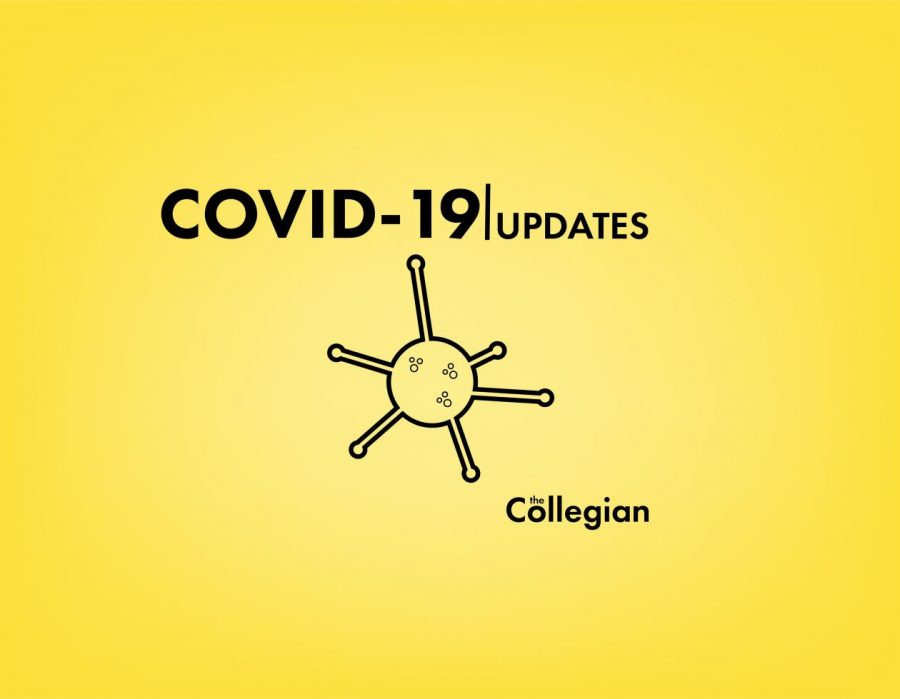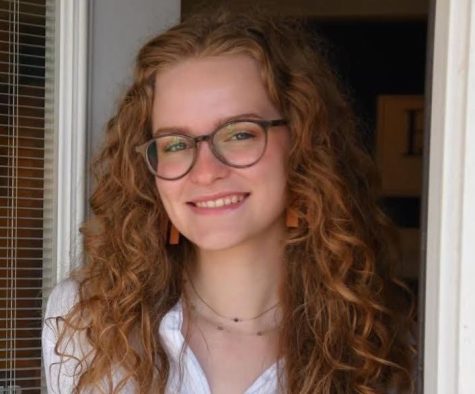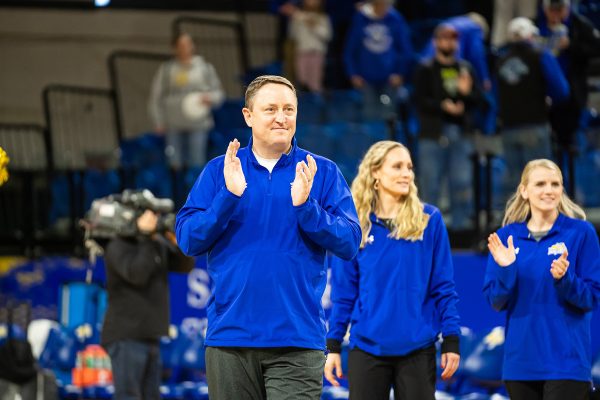Gov. Noem discusses legal action against state tribal regions
May 11, 2020
South Dakota Gov. Kristi Noem addressed issues regarding tribal checkpoints in her May 11 press briefing.
Oglala Sioux and Cheyenne River tribes in Eastern South Dakota have checkpoints in place to help mitigate the number of people entering the tribes, potentially spreading COVID-19.
Friday, May 8, Noem threatened to take legal action against tribes with COVID-19 checkpoints on state highways if they were not taken down within 48 hours.
The governor has stated that these tribes are not letting vehicles transporting goods or road maintenance vehicles through the checkpoints.
“We need people that are just driving through the area to be able to do so, we need to get property owners to their property, ranchers to their cattle. … We have to allow essential services to come through. Those deliveries of gas, medical supplies and food are incredibly important to make sure we have that facilitated through these areas,” Noem said.
According to Noem, she has been in communication with tribal leaders for nearly a month trying to come to a resolution for the issue.
17 legislators sent a letter to Noem expressing concern and criticism for the way this situation is being handled and that legislators have not been involved in the decision making process on this issue thus far.
“My office staff have been communicating with legislators… we will continue to work with them to find a resolution to the situation,” Noem said.
Noem stresses the need for clarity on who is able to enter the tribal regions and where those checkpoints are located.
However, she also wants to stress that she has worked very well with tribal leaders in the past on other issues like meth deals on reservations, missing and murdered indigenous women and equal access to education for tribal children. She believes that this situation will not cause a great divide between the state and tribal relations.
“For years, I have worked with tribes to meet their needs and to do what we can that we’re good partners and these checkpoints are something we are going to have to come to a resolution on,” Noem said.
Noem felt it important to take legal action against the tribes because a resolution has not yet been met. Her top concern is allowing these people and services access onto these tribal lands.
“For me, it’s a priority that we make sure that if somebody needs an ambulance on a reservation, one can get to them and I’m not sure of that today with the checkpoints operating the way that they are,” Noem said.


























